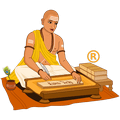























Sunrise05:30
Sunset18:34
Moonrise05:02, Apr 22
Moonset16:36
Shaka Samvat0063 Vrisha
Vikram Samvat0198 Angira
Gujarati Samvat0197 Nandana
Amanta MonthVaishakha
Purnimanta MonthJyeshtha
WeekdayShukrawara
PakshaKrishna Paksha
TithiTrayodashi upto 16:43
NakshatraAshwini upto 00:35, Apr 22
YogaAyushmana upto 15:16
KaranaGaraja upto 06:15
KaranaVanija upto 16:43
KaranaVishti upto 03:05, Apr 22
Pravishte/Gate3
Rahu Kalam10:24 to 12:02
Gulikai Kalam07:08 to 08:46
Yamaganda15:18 to 16:56
Abhijit11:36 to 12:28
Dur Muhurtam08:07 to 08:59
Dur Muhurtam12:28 to 13:20
Amrit Kalam18:04 to 19:31
Varjyam20:58 to 22:24
Notes: All timings are represented in 24-hour notation in local time of Hangzhou, China with DST adjustment (if applicable).
Hours which are past midnight are suffixed with next day date. In Panchang day starts and ends with sunrise.


 Simha
Simha Magha 06:42
Magha 06:42

 Vrishabha 17:32
Vrishabha 17:32 Rohini 06:37
Rohini 06:37

 Mithuna
Mithuna Ardra 26:51+
Ardra 26:51+

 Karka
Karka Pushya 24:54+
Pushya 24:54+

 Simha
Simha Magha 24:54+
Magha 24:54+

 Simha 07:51
Simha 07:51 U Phalguni 26:44+
U Phalguni 26:44+

 Vrishchika
Vrishchika Anuradha 14:01
Anuradha 14:01

 Dhanu
Dhanu Mula 20:14
Mula 20:14

 Dhanu
Dhanu P Ashadha 23:14
P Ashadha 23:14

 Dhanu 05:56
Dhanu 05:56 U Ashadha 25:52+
U Ashadha 25:52+

 Makara
Makara Shravana 27:58+
Shravana 27:58+

 Makara 16:45
Makara 16:45 Dhanishtha 29:21+
Dhanishtha 29:21+

 Kumbha
Kumbha Shatabhisha
Shatabhisha

 Kumbha 23:49
Kumbha 23:49 Shatabhisha 05:56
Shatabhisha 05:56

 Mesha
Mesha Ashwini 24:35+
Ashwini 24:35+

 Vrishabha
Vrishabha Krittika 19:03
Krittika 19:03

 Mithuna
Mithuna Mrigashira 13:26
Mrigashira 13:26

 Mithuna 27:30+
Mithuna 27:30+ Ardra 11:02
Ardra 11:02

 Karka
Karka Punarvasu 09:04
Punarvasu 09:04

 Karka
Karka Pushya 07:39
Pushya 07:39

 Karka 06:51
Karka 06:51 Ashlesha 06:51
Ashlesha 06:51In Hindu Calendar, the day starts with local sunrise and ends with next day local sunrise. As sunrise time is different for all cities, Hindu Calendar made for one city is not valid for any other city. Hence it is important to use location based Hindu Calendar, like this website. Further, each Hindu day consists of five elements, which are called angas. These five elements are -
In Hindu Calendar, all five elements together are called Panchang. (In Sanskrit: Panchang = Pancha (five) + Ang (part)). Hence Hindu Calendar which shows all five elements for each day is called Panchang. In South India Panchang is known as Panchangam.
When Hindu Calendar includes Muslims, Sikh, Christian, Buddhist and Jain festivals, including national holidays, it is called as Indian Calendar.